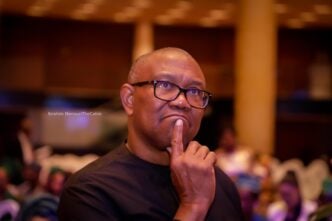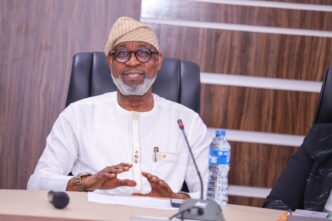In this piece, we discuss variants of government founded independent investment vehicles that have helped to catapult countries like Singapore, China and Brazil into prosperity. We show how a semblance of these kinds of investment vehicles is being institutionalized in Anambra with the Anambra State Development and Investment Corporation (ADIC). We argue, considering the resource constraints in subnational governments, that what Anambra has done is one of the most viable ways for a subnational government to catapult itself into economic prosperity.
On the 10th of April 2025, Governor Chukwuma Soludo signed into law the Anambra State Development and Investment Corporation (ADIC) bill, 2025. ADIC is structured to be able to attract, finance and oversee business and infrastructure projects. The recently signed ADIC law empowers the corporation to mobilize capital from private and public sources. It will be an investment vehicle that is independent of government and protected from government interference – a private sector-led multilateral corporation, as it were. This is a model for sustainable, market-led development finance that developing countries must imbibe in order to change their trajectory.
This model established by Governor Soludo bears semblance with corporations that have helped to develop countries like Singapore, China and Brazil. In Singapore, we have the Temasek Holdings. In China, we have the China Investment Corporation (CIC) – a corporation with a net asset of $1.24 trillion as at 2023. And in Africa, we have the Nigerian founded Africa Finance Corporation (AFC) – a corporation that have helped various governments deliver bankable projects without relying on debt or donor aids.
There are some factors responsible for the success of AFC, CIC and Singapore’s Temasek Holdings. One, government partners with these corporations but do not control them. Two, these corporations are transparent and accountable. Three, government provides stability, good regulation and legal protections for these investment corporations. Four, funds from these corporations are invested in real sectors (i.e. infrastructure, tech, exports) and not just on financial assets. These success factors have been refined to make ADIC fit for purpose.
Advertisement
ADIC will bear a lot of similarities with the Africa Finance Corporation (AFC), which was founded in 2007 with Governor Soludo as the founding chairman, when he was the governor of the Central Bank of Nigeria. Today, AFC has over $14 billion invested in five key sectors: power, transport and logistics, natural resources, telecommunications and heavy industries.
Working with Stren & Blan Partners, the Anambra State government conceptualized ADIC as a private sector-led investment corporation with a structure that would ensure operational independence, good corporate governance and financial stability. More importantly, in order to ensure sustainability, critical systems are imposed to insulate ADIC from bureaucratic bottlenecks and political interferences. ADIC is structured to make decisions based on commercial merit and not politics.
And just like AFC does not take orders from host governments and has a charter that mandates that all investments meet strict financial, environmental and social standards, ADIC is structured to ensure investments are made based on economic viability. It is envisaged that ADIC will not take orders from government and would be independent in order to bring maximum returns to its shareholders.
Advertisement
It is also envisaged that ADIC will establish strategic partnerships with commercial investors globally.
This column believes that no Nigerian state can grow without sustained long-term investments from corporations. These corporations should be able to mobilize private capital to support investments. They should be able to invest their resources – whether private or public capital – into economically viable projects and not politically expedient projects. Actually, no Nigerian state can achieve a first world status with government spending alone.
The critical role played by Temasek Holdings, a private sector-led corporation which is 100% owned by the government of Singapore but operates independently on commercial principles, can be seen in the Singaporean economy. Despite government ownership, Temasek follows strict corporate governance, market discipline, and long-term profitability goals —i.e. functioning like a private investment firm. It has supported strategic investments that have catapulted Singapore’s economy in telecoms, banking and shipping. Temasek Holdings – which manages over $389 billion in asset today – played a critical role in Singapore’s transformation from a developing country into a high-income and innovation-driven economy.
In China, China Investment Corporation (CIC) and hundreds of private investment funds have helped catapult the Chinese economy. CIC and other state-led yet commercially oriented funds supported strategic sectors like the energy, infrastructure, and technology in China. Investments from CIC and private equity companies helped China move from a low-cost manufacturing hub to a global tech and industrial superpower. China also encouraged private venture capitals and industrial investments. (Companies like Alibaba and Tencent grew through investments from venture capitals)
Advertisement
In Brazil, BNDES and Private Infrastructure Funds helped build the Brazilian economy. Brazil used public banks like BNDES in combination with private equity and infrastructure funds to support energy, logistics, and agribusiness. Private capital helped, with protection from government, to scale Brazil’s renewable energy and commercial agriculture, which are today the key drivers of Brazil’s export growth.
This column believes that with ADIC, Anambra is on course to becoming a first world subnational government.
Nwankwo is the special adviser to Soludo on special projects.
Advertisement
Views expressed by contributors are strictly personal and not of TheCable.














